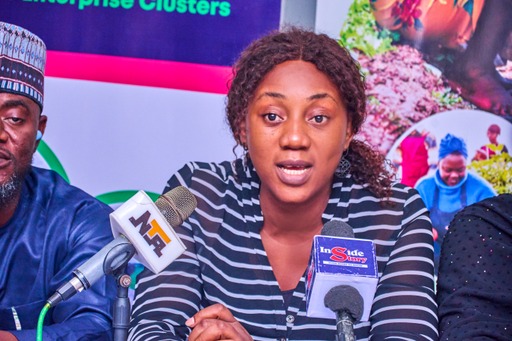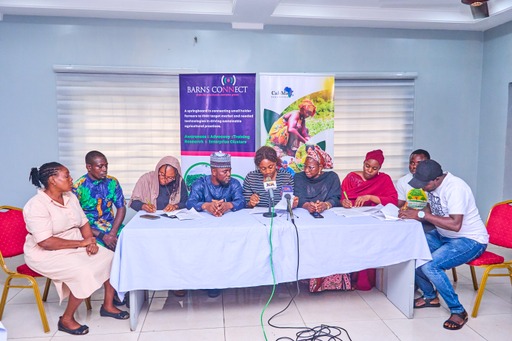NGO Calls on Kogi to Adopt Organic Agriculture, Boost Biodiversity

…Says State Can Become Nigeria’s Organic Agriculture Capital
In a press briefing held in Lokoja on Monday, September 9, 2024, the Cal-Maji Foundation, in partnership with the Heinrich Boell Foundation and other key stakeholders, unveiled an ambitious plan to transform Kogi State into the organic agriculture capital of Nigeria and Africa.
The briefing which follows a three-day capacity-building workshop focusing on agroecological practices, held last week, emphasized the urgent need for sustainable agricultural practices to combat climate change, soil degradation, and food insecurity.

Project Director of the Cal-Maji Foundation, Faith Ayegba, stressed the importance of a shift in farming methods, calling on the state government, farmers, and stakeholders to embrace regenerative agriculture, agroecology, and agroforestry. “Kogi State stands at a critical point where we must rethink our agricultural practices to ensure long-term food security and protect the livelihoods of our rural communities,” Ayegba stated.
The briefing emphasized the urgency of addressing food security in the state, as recent data shows rising food scarcity and malnutrition, especially among vulnerable populations. Ayegba noted that the reliance on chemical inputs and monocultures is unsustainable and makes the region’s food systems more vulnerable to climate shocks. The push for sustainable methods, including the rejection of genetically modified (GM) seeds, aims to empower local farmers while protecting the environment.
The proposed shift to organic agriculture and agroecology offers several benefits, including improved soil health, biodiversity conservation, healthier food production, and new economic opportunities. Organic farming enriches the soil, reduces the need for chemical fertilizers, and creates more resilient farming systems, while agroecology promotes diverse crops and protects wildlife. The Cal-Maji Foundation also pointed out that the global demand for organic products presents an economic opportunity for Kogi farmers.
As part of the broader vision, the Cal-Maji Foundation proposed a series of actions for the Kogi State government. These include policy support for organic farming, training programs for farmers, the establishment of research centers to improve organic techniques, and the promotion of local and international markets for organic products. Community engagement is also central to the initiative, with efforts to involve local communities in decision-making and raise awareness about the benefits of organic agriculture.
Another key component of the plan is agroforestry, which integrates trees into farming systems to enhance soil health, sequester carbon, and promote biodiversity, while also offering additional income streams for farmers.
“The time to act is now,” Ayegba urged, calling on the government, private sector, and local communities to join hands in realizing the goal of making Kogi State a leader in sustainable agriculture. By adopting organic farming, Kogi can secure a healthier and more prosperous future for its people and become a model for other regions across Africa.
The statement received endorsements from several organizations, including SWOFON, Be The Help Foundation, and Chachavivi Women and Girl Child Development Foundation, signaling widespread support for the initiative.





